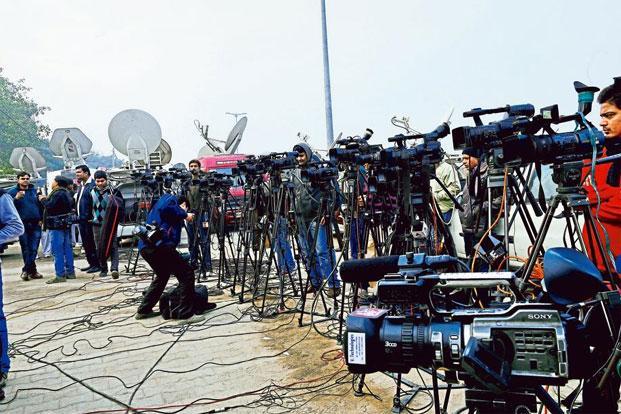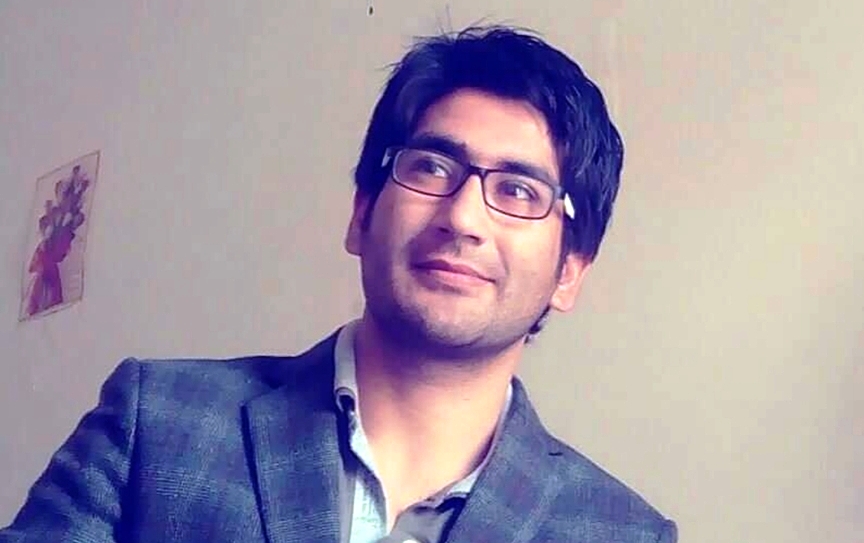by Ghulam Mohammad Khan
In a debate, you cannot actually distinguish between a moderator and a debater. All the participants indulge in mutually antagonistic opinions and never actually arrive at a conclusion

After hearing a psychiatrist outline the damaging psychological consequences of extended home confinement due to Coronavirus, I suddenly began to ponder over the impact of news media, which I had just abandoned due to its perennial obsession with tragedy. The psychiatrist did not blame it for the increasing patient complaints, however, in my case; I could not find anything except media responsible for triggering the landslide of despair and hopelessness. Let me focus on some undesirable aspects of news media.
Obsession with the Macabre
Being dismissive is a general human tendency. My mind, at one point, began to resist the slow introjection of undesirably morbid information and the manipulated delivery of various news channels. On their channels only the gruesome, the disheartening and the sentimental can qualify to become the news. The obsession with the incessant coverage of the burning crematoriums, the patients writhing in distress and their wailing attendants, repeatedly announcing the number of the dead, the coverage of deaths in accidents, and the repeated telecast of it all in different languages characterizes our news channels.

It is not that death doesn’t happen but nobody wants to be there when it happens. Watching the unrestrained display of death in the form of macabre images and visuals accompanied by an excruciating reportage shouldn’t be aiming to bring about catharsis or anagnorisis in the already confused viewers. It is here the news media appears much less as a medium of information, as it should be, and more of an agency motivated to evoke an atmosphere of fear.
Tone and Terminology
‘The pen had been mightier than the sword but then the tongue took over’, wrote Indian academician Amit Abraham. With the tongue taking it over from the pen in news media, the connotative or symbolic expansion of words, signs and expressions has been unprecedented. Sometimes, it is not what you say; it is how you say it. Even if the viewer is unable to fathom the semantics, the tone alone should suffice to evoke a sense of emergency, hopelessness and dismay.
When it comes to the manipulation of terminology, our news media is very quick at glomming onto a selective lexicon, which is inherently divisive and inciting. Like a vulture to the carrion, it pounces on a politician’s disruptive phrase, a celebrity’s snobbish expression, and a capitalist’s earnings and then endlessly chews upon the same until interpretation itself is left unrecognizable. When such a powerful institution repeatedly uses such terminology in already parlous conditions, it can only evoke a range of disheartening cultural associations to which we are already familiar.
Ideology and Prejudice
Usually, the news media occupies the middle ground to insulate itself from criticism and to give the news legitimacy. The middle ground itself cannot escape ideology though. Contrarily, however, our news channels are closely emblematic of the ideological dissensions among the political elite.

In a debate, you cannot actually distinguish between a moderator and a debater. All the participants indulge in mutually antagonistic opinions and never actually arrive at a conclusion. Almost all the debates revolve around the policies and political leadership as if nothing else exists in the world. Every argument is preconceived and aimed to serve a particular ideology. In fact, there are no arguments, there are only attacks.
All this leaves a slow yet deep bearing on the viewer’s consciousness. In the process of viewing, the viewer doesn’t merely consume the information but also the ideology. And I can say it with certainty that most of our street or shop-front confrontations, arguments and counter-arguments over political matters are deeply influenced by our news media culture.

Given the tough times and an ever-increasing uncertainty about the future, we shouldn’t much expose ourselves to this side of our news media culture. There is every chance that in the process we may pick up an infection far more dangerous and complicated than the coronavirus itself. You can ‘go and catch a falling star, get with child a mandrake root’, but you cannot straighten a bend in human consciousness once it is shaped on the pattern of ideology.
(Author is an Assistant Professor in Higher Education Jammu and Kashmir, currently posted at GCET, Safapora Ganderbal). The opinions expressed in this article are those of the author and do not purport to reflect the opinions or views of Kashmir Life.)















